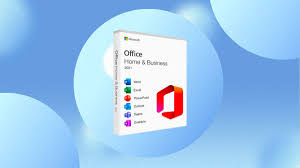Forex trading is one of the most active and lucrative financial markets in the world, with an average daily trading volume exceeding $7.5 trillion as of 2023. Despite its massive popularity, many still find the forex market intimidating due to its fast-paced nature and the intricate dynamics of currency trading. This beginner’s guide provides an overview of Forex trading, key concepts, and tips to get started.
What is the Forex Market?
Forex, short for foreign exchange, is a decentralized marketplace where individuals, companies, and governments trade currencies. Unlike traditional stock markets, there’s no central exchange for Forex—it operates globally and around the clock, making it accessible 24 hours a day, five days a week.
Currencies in Forex trade as pairs, such as EUR/USD (Euro vs. US Dollar). The first currency in the pair is the base currency, and the second is the quote currency. For example, if EUR/USD equals 1.10, this means 1 Euro equals 1.10 USD.
A key statistic to note here is that the Forex market dwarfs all other financial markets in scale. According to the Bank for International Settlements, the trading volume grew from $5 trillion per day in 2016 to $7.5 trillion per day in 2023, signaling increasing global participation.
Why Trade Forex?
The Forex market has become increasingly attractive due to its accessibility and potential for high returns. Key reasons individuals and institutions trade Forex include:
• Liquidity: With trillions traded daily, Forex offers unmatched liquidity. Positions can be opened and closed almost instantly.
• Leverage: Forex brokers often allow traders to control large positions with relatively small capital, amplifying profit potential.
• Volatility: Daily fluctuations in currency values create trade opportunities and profit potential.
However, traders must remain cautious. According to data from trading platforms, the average beginner loses 65% of their initial capital due to a lack of experience or poor risk management.
How to Get Started
1. Understand the Basics: Familiarize yourself with currency pairs and terminologies like pips, spreads, and leverage.
2. Choose a Broker: Select an online Forex broker offering reliable platforms, competitive spreads, and regulatory compliance.
3. Start Small: Beginners should trade with a demo account or small investments to gain confidence without significant financial risk.
4. Use Risk Management Tools: Strategies like setting stop-loss orders can help minimize losses.
Trading Forex requires knowledge and discipline, but statistics show that those who invest time in learning the market significantly improve their chances of success.
Final Thoughts
The Forex market provides endless opportunities for traders, but preparation, education, and strategy are critical for success. Equipped with the basics outlined above, you’re ready to explore this dynamic market responsibly.


